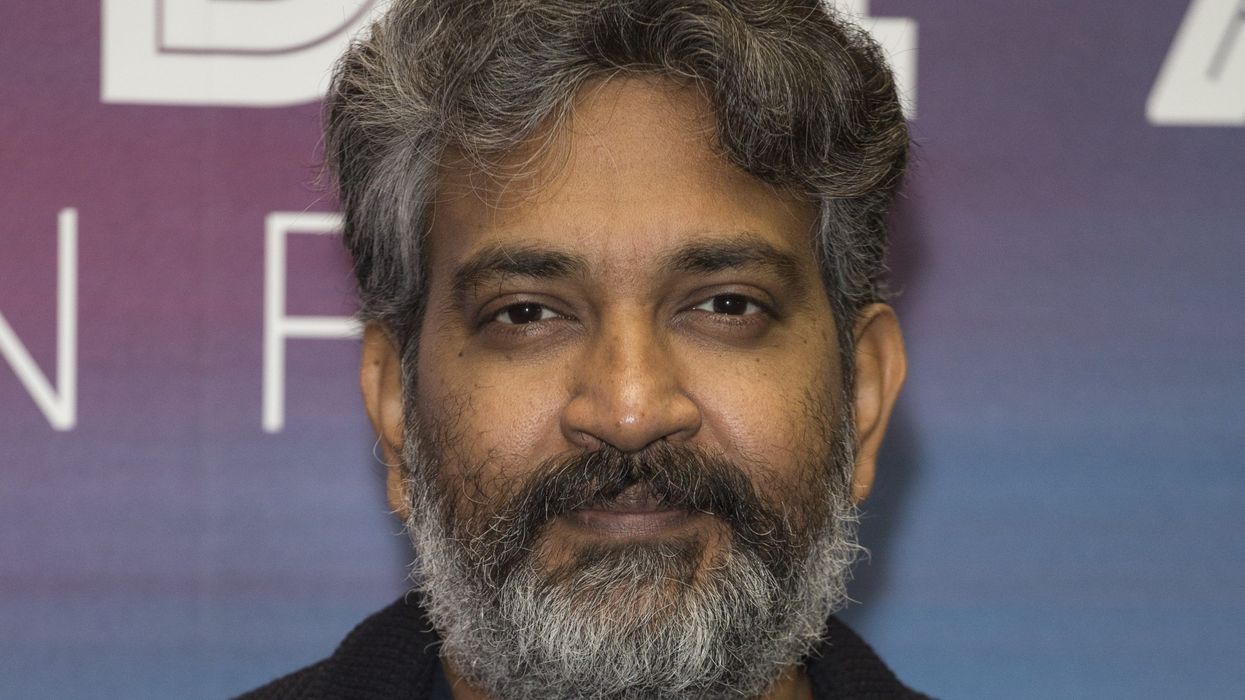Acclaimed filmmaker SS Rajamouli on Thursday unveiled the trailer of his much-awaited film RRR, starring Ram Charan, NTR Jr, Ajay Devgn, and Alia Bhatt. The entire team, excluding Charan, came together to launch the trailer of the film at a multiplex in Mumbai.
Rajamouli, who shot to international fame with the riotous success of Baahubali: The Beginning and Baahubali: The Conclusion (2017), said during the press conference that he is aware there will be comparisons between the new film and his previous Baahubali franchise but he is not burdened by the audiences’ expectations.
“There are a lot of people obviously expecting the same kind of film after Baahubali. But we can't keep making the same films again and again. I am aware of the expectations but I will be banking more on the story, the characters, the relationship between the characters, and the emotional high we get while watching them. Also, any section of the audience that comes to the theatres (based on) the trailer or previous track records or hero's images (that) will only help to bring them back to theatres. But the moment they come, then within two-three minutes into the film will be watching what the film (RRR) is and not what we did before," Rajamouli told reporters.
The director, also known for blockbusters like Magadheera (2009) and Eega (2012), believes the fans are only looking for an experience similar to Baahubali from the world of RRR. “If you look deeply, the audience is not waiting for another Baahubali, they are waiting for the kind of experience they had in the film, the kind of emotion they felt in the film that is what they want because they don't have that much of analysis to tell you. So simply they say we want another Baahubali. But what people want is the same kind of emotion and high,” he added.
For RRR, the director has roped in Devgn and Bhatt, who are making their debut in the Telugu film industry. Rajamouli said it is just a “mental block” that has demarcated actors according to their region, which shouldn't have been the case.
“It is just a mental block that North actors have to act only in Hindi films and South actors have to act in movies in South Indian languages. We cast them because they're great actors. Acting doesn't have a language. Once we remove the mental block, then we have a big area of actors, who you can approach. I'm not an actor but I'm pretty sure they all want to do challenging characters. If they have more directors from different languages, approaching them for characters, they will also be interested. In the future, you'll be seeing more collaborations across languages. If you believe in your core storytelling, you don't need to worry about languages. Whether it's Telugu, Tamil, Hindi, or any other language, it doesn't matter. Language is just a medium of communication. Words are just small bridges. In cinema, visuals tell you the story. When the language doesn't matter, you bank on the best actor who suits the role,” he said.
Produced by DVV Entertainments, RRR will arrive on January 7, 2022.




